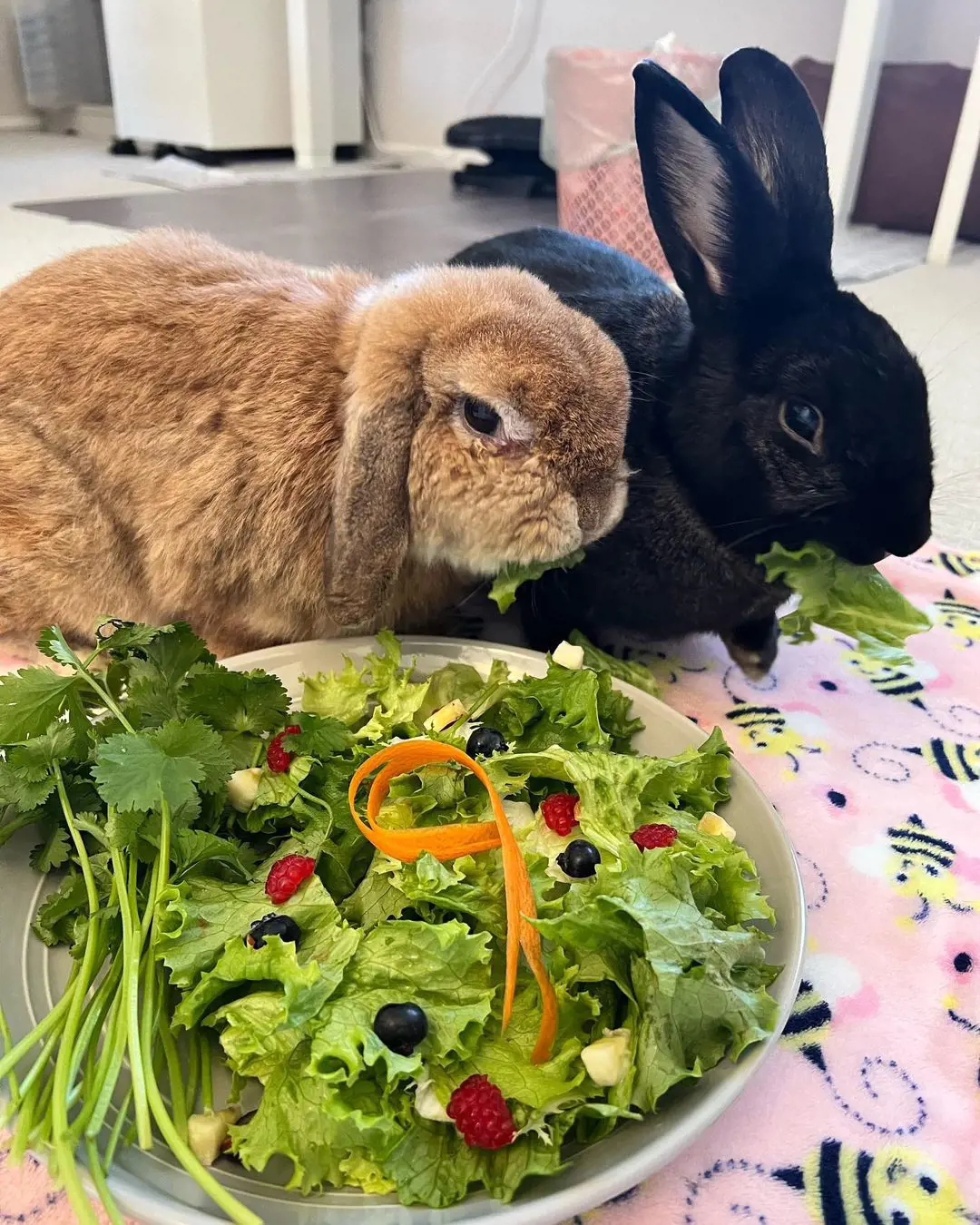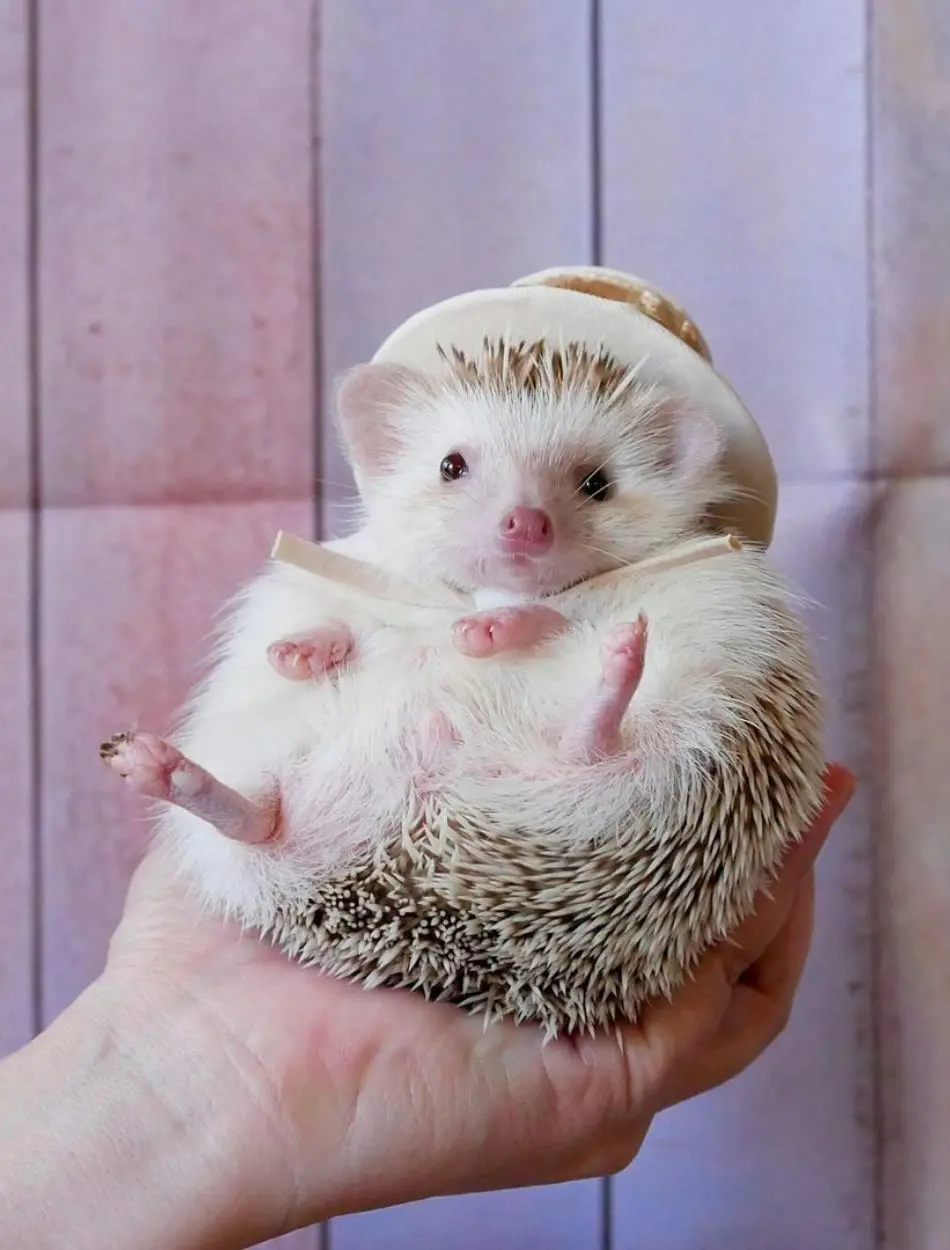20 Human Food That Rabbits Can Eat
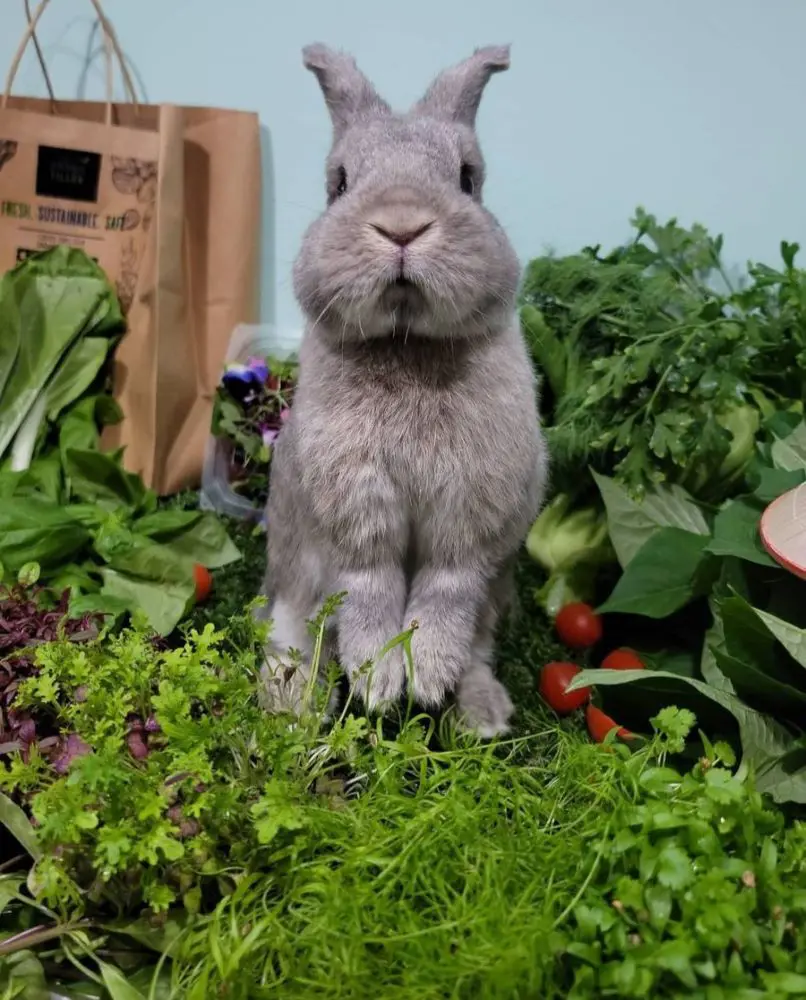
If you are a rabbit owner, you must be aware of their food sensitivity. Their digestive systems are easily impacted by dietary choices, so choosing the right foods is crucial for their health and survival.
Rabbits rely on a diet consisting of vegetables, leaves, and peppers that are rich in fiber, vitamins, and minerals. From leafy greens and vegetables to herbs and occasional treats, these rabbit foods provide essential nutrients and a stimulating diet for your furry companions.
1. Kale
Your pet rabbit will enjoy several kale varieties, including curly kale, lacinato kale (also known as dinosaur kale), and red Russian kale. The leaf cabbage is also a convenient treat as it does not need to be cooked. In fact, it should be served raw to preserve its nutrients.
Wash it thoroughly to remove any pesticides or dirt, then chop it into manageable pieces. Offer the veggies as part of a balanced diet, mixing it with other leafy greens and vegetables. A small handful of kale a few times a week is sufficient as too much can cause gas and bloating.
2. Cabbage
Cabbage has a crunchy texture and slightly sweet taste that greatly appeals to the natural foraging instincts of rabbits. These bunnies particularly enjoy the tender, leafy parts of the cabbage, which are easy to nibble and chew.
However, avoid feeding the harder, fibrous core and the thick outer leaves as they can be difficult for rabbits to digest and may cause gastrointestinal discomfort. By offering the softer inner leaves, you can provide a delightful and satisfying treat that rabbits will eagerly munch on.
3. Lettuce
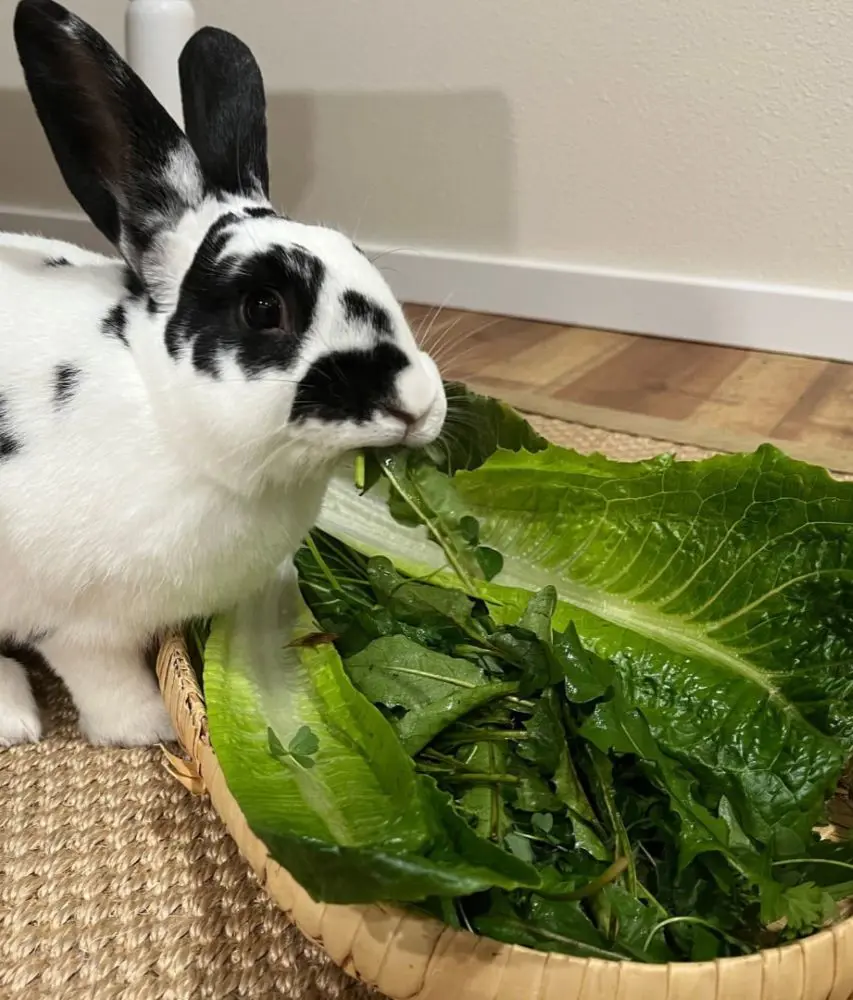
Humans and rabbits' common love for lettuce has further strengthened their bond. This leafy green is a refreshing choice for a bunny's diet, providing essential hydration, fiber, and vitamins.
However, not all lettuce varieties are ideal; romaine and leaf lettuces are preferable over icebergs due to their higher nutritional content. The iceberg lettuce has a high water content and minimal nutritional value; it also contains lactucarium, a milky fluid harmful to rabbits.
When serving lettuce, avoid overfeeding your pet. A small handful of fresh lettuce 3-4 times a week is sufficient. Excessive eating can lead to digestive issues and nutritional imbalances.
4. Bell Peppers
Bell Peppers are a safe and delightful snack to treat your beloved pet. Make sure to avoid feeding the stems and seeds as they are tough to digest and a possible choking hazard.
While bell peppers can be fed to rabbits, it's best not to offer them every day. Providing bell peppers 2-3 times a week is ideal to absorb their high vitamin C content and hydration properties. But, be careful as overuse can cause digestive problems like diarrhea and gas. The high sugar content can disrupt their gut flora, leading to soft stools.
5. Carrot Tops
Carrot Tops are a delightful food you can enjoy with your house bunny. These leafy greens have a sweet taste and crispy texture, making them an exciting addition to their diet.
Dried carrot tops are particularly beneficial because they reduce the risk of spoilage and maintain their nutritional value. Drying also helps concentrate the flavor, resulting in an even more enticing snack for bunnies. Furthermore, dried carrot tops also serve as a convenient and healthy treat that can be easily portioned out to ensure your rabbit receives a balanced diet.
6. Bok Choy
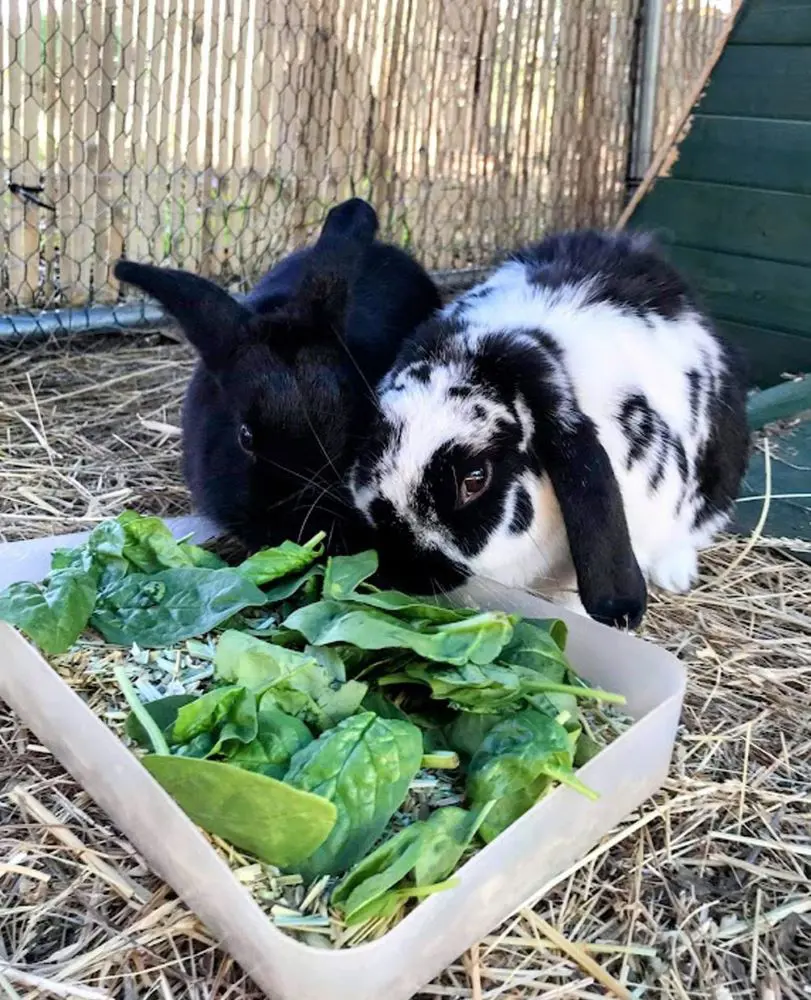
Also known as Chinese cabbage, bok choy is a leafy green vegetable packed with essential nutrients. The plant is rich in vitamins A, C, and K, as well as calcium and fiber, offering several health benefits.
Your pet rabbit will cherish the crisp texture and mild sweet flavor of bok choy. The high fiber content aids in digestion, while the low oxalate levels reduce the risk of urinary issues common in rabbits. However, it's important to introduce bok choy gradually and in moderation to prevent any side effects.
7. Brussels Sprouts
Rabbits can enjoy Brussels sprouts as part of their diet, but it's important to feed them correctly. While the sprouts themselves are safe; the leaves must be fresh and green for consumption. Meanwhile, other parts of the plant can be toxic to rabbits.
When introducing Brussels sprouts, start with small amounts to ensure your rabbit's digestive system can handle them. You can feed your rabbit up to one sprout per day, but this should only be done if they are accustomed to eating a variety of greens and only for short periods. These vegetables contain goitrogens, compounds that can interfere with the absorption of iodine and the nutrients of other vegetables, potentially leading to nutrient imbalances if overfed.
8. Turnip Greens
Consider turnip greens as a supplement to your bunny's diet. These veggies contain calcium, potassium, and fiber along with vitamins A, C, and K. Vitamin A supports good vision and immune function, while vitamin C aids in tissue repair and growth.
The flavor and texture of turnip greens make them particularly attractive to rabbits. They have a slightly peppery taste and a crunchy form that bunnies find delightful. This combination mimics the natural foraging experience, keeping rabbits engaged and satisfied.
9. Summer Squash
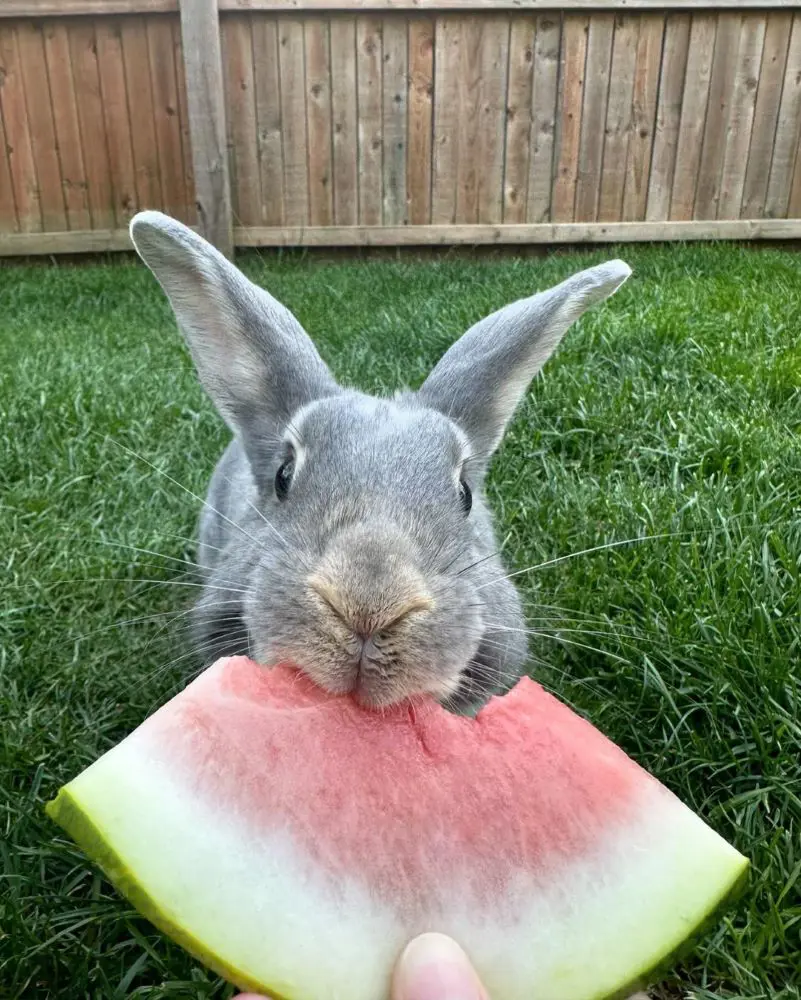
Summer Squash is a broad term for various types of soft-skinned, tender vegetables harvested in the summer months. Common varieties include zucchini, yellow squash, and pattypan squash. These vegetables are characterized by their mild flavor, perfect for a rabbit treat.
Offer a small portion, about 1-2 tablespoons of chopped squash, a few times a week. Introduce it gradually into their diet and mix it with other vegetables to ensure a balanced intake. This approach helps provide variety and essential nutrients without overwhelming your rabbit's digestion.
10. Endive
Endive is a low-calorie vegetable that is eaten for its ability to support immune function, vision, and bone health. Its fibers are also useful in promoting a healthy gut in rabbits.
Normally, rabbits enjoy raw endives in salads or as a crunchy addition to fresh vegetable mixes. It should not be cooked, as cooking can destroy some of its beneficial nutrients and alter its texture. Raw endive retains its crispness and natural flavors, offering a satisfying crunch that rabbits enjoy during their daily foraging activities.
Beyond its nutritional benefits, endive can also serve as a stimulating treat for rabbits. Introducing endive as part of a varied diet ensures rabbits receive both nutritional support and sensory satisfaction.
11. Escarole
Escarole is another great choice for a nutritious bunny treat. A type of endive, this vegetable contains fiber and minerals such as calcium and potassium. These nutrients are crucial for maintaining bone strength and protecting the plant from diseases and harmful pests.
When feeding escarole to your pet rabbit, start by offering a small amount (about a handful) 2-3 times per week as part of a varied diet. This frequency helps prevent overfeeding and ensures a balanced intake of nutrients from different vegetables and leafy greens.
12. Herbs
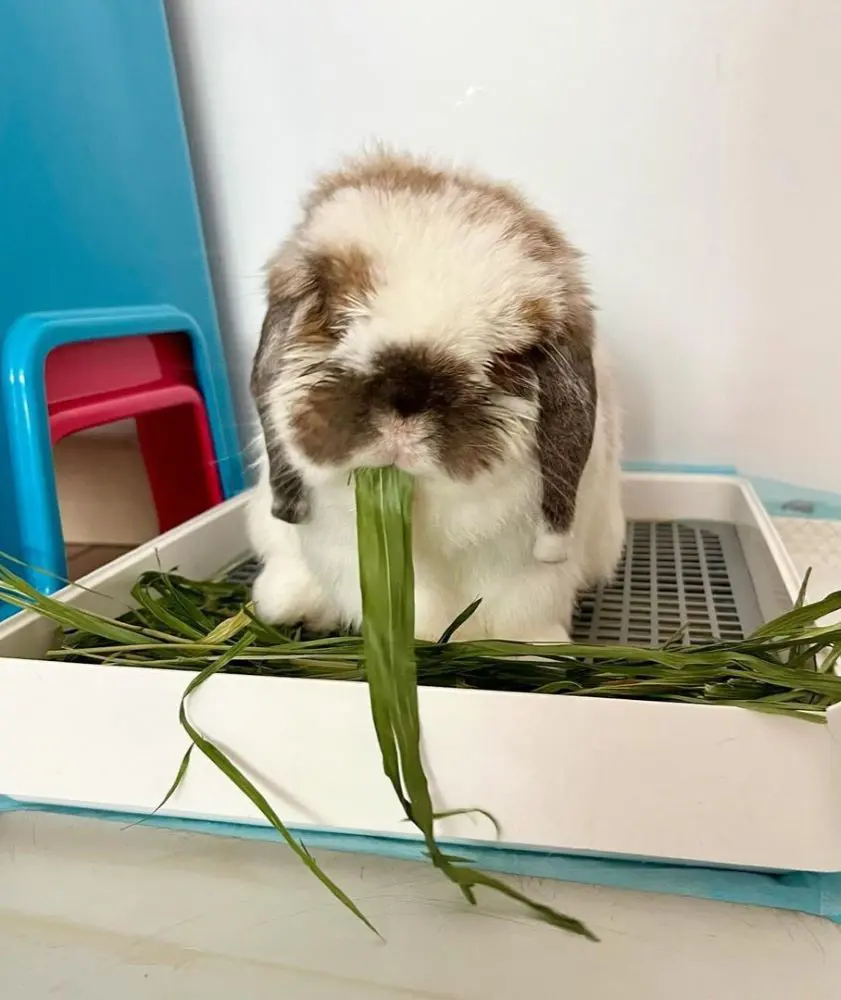
Introduce essential herbs to rabbits when they're still young. Some safe herbs include parsley, cilantro (coriander), basil, dill, mint, and oregano. These herbs are rich in vitamins and minerals, offering antioxidants and essential nutrients that support a rabbit's immune system and overall health.
Additionally, herbs serve as natural foraging material by stimulating rabbits mentally and physically. Chewing on herbs helps wear down their continuously growing teeth, preventing dental issues common in rabbits.
Only feed herbs that are fresh, clean, and free from pesticides. Introduce herbs gradually to monitor your rabbit's tolerance to these plants.
13. Fennel
Fennel is known for its natural sweetness and slight licorice taste can entice even the pickiest eaters. They also serve as a great foraging material, encouraging natural chewing behavior that helps maintain dental health.
As an aromatic herb, fennel with packed with vitamin C, potassium, and dietary fiber. The vitamin C content helps boost the immune system, while the potassium supports healthy heart function. Make sure your pets stay happy and healthy by including fennel as a part of a varied diet.
14. Watercress
Watercress has a peppery taste and unique flavor that makes it an attractive food source for rabbits. Offer watercress 2-3 times a week to offer watercress 2-3 times a week. Only serve around one small handful per serving to prevent overfeeding.
Serve watercress raw to preserve its nutrients after thoroughly washing to remove any pesticides or dirt. Avoid giving rabbits cooked watercress, as cooking can diminish its nutritional value and alter its texture, making it less suitable for their digestive systems.
15. Wheatgrass
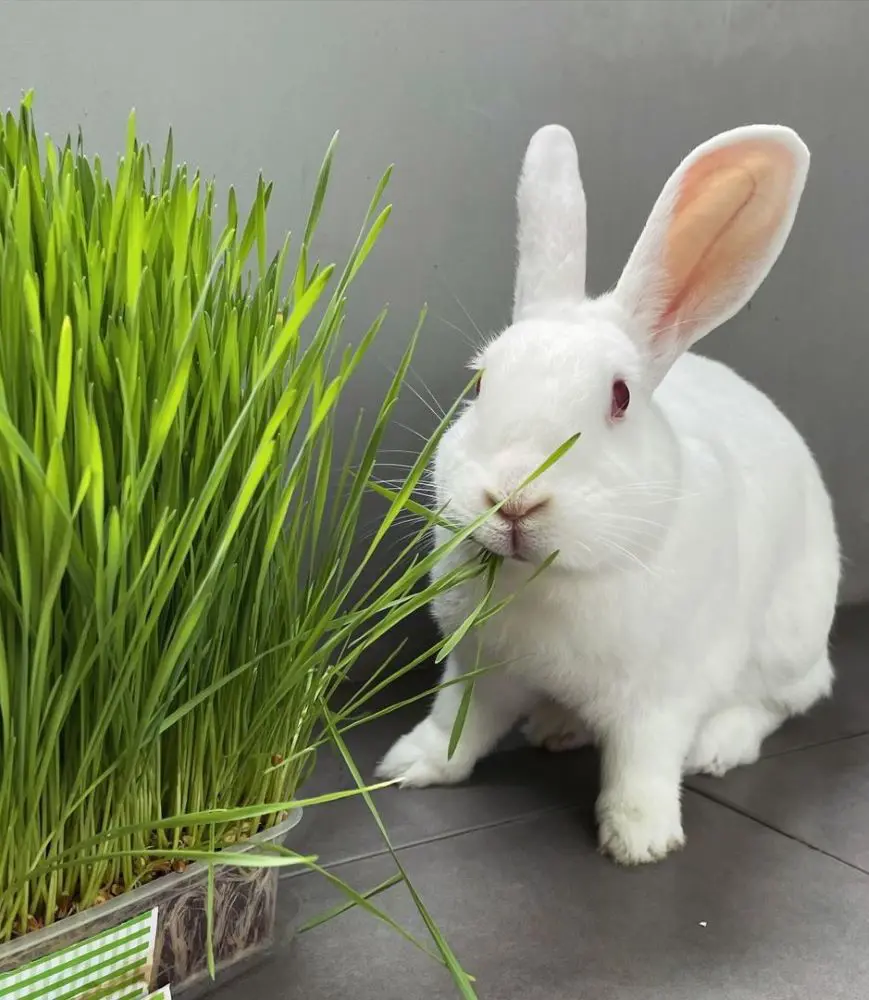
Rabbits prefer eating wheatgrass due to its fresh, sweet taste and tender texture, which mimic their natural habitat. This nutrient-dense green promotes healthy digestion and supports overall well-being.
To maximize the benefits, offer a small handful a few times a week. Ensure the wheatgrass is fresh, clean, and pesticide-free. Gradually introduce it into their diet to monitor for any digestive sensitivities.
16. Zucchini
Rabbits love raw zucchini, which is low in calories and rich in vitamins, fiber, and water content that aid hydration. There is no need to remove the skin, as it contains valuable nutrients and is safe for rabbits to eat. However, it's best to remove the seeds as they can pose a choking hazard and may be harder to digest.
For a delightful rabbit treat, prepare a simple zucchini salad. Chop raw zucchini into small, manageable pieces and mix with a handful of fresh parsley and a few slices of carrot. This combination provides a nutritious and tasty snack that your bunny will be thankful for.
17, Arugula
Also known as rocket, arugula is a leafy green vegetable with a slightly peppery flavor. Its vitamin C content can boost a rabbit's immune system and protect against illness. Likewise, the calcium in arugula is vital for maintaining strong bones and teeth, promoting optimal bone health in rabbits.
To introduce arugula into your rabbit's diet, start with small amounts to make them tolerate it well. Mix a few leaves with their usual greens and gradually increase the quantity over a week or two.
Also, monitor your rabbit for any signs of digestive upset, such as soft stools or decreased appetite. Aim to include arugula as part of a balanced diet, offering it 2-3 times a week alongside other vegetables, hay, and pellets.
18. Spring Greens
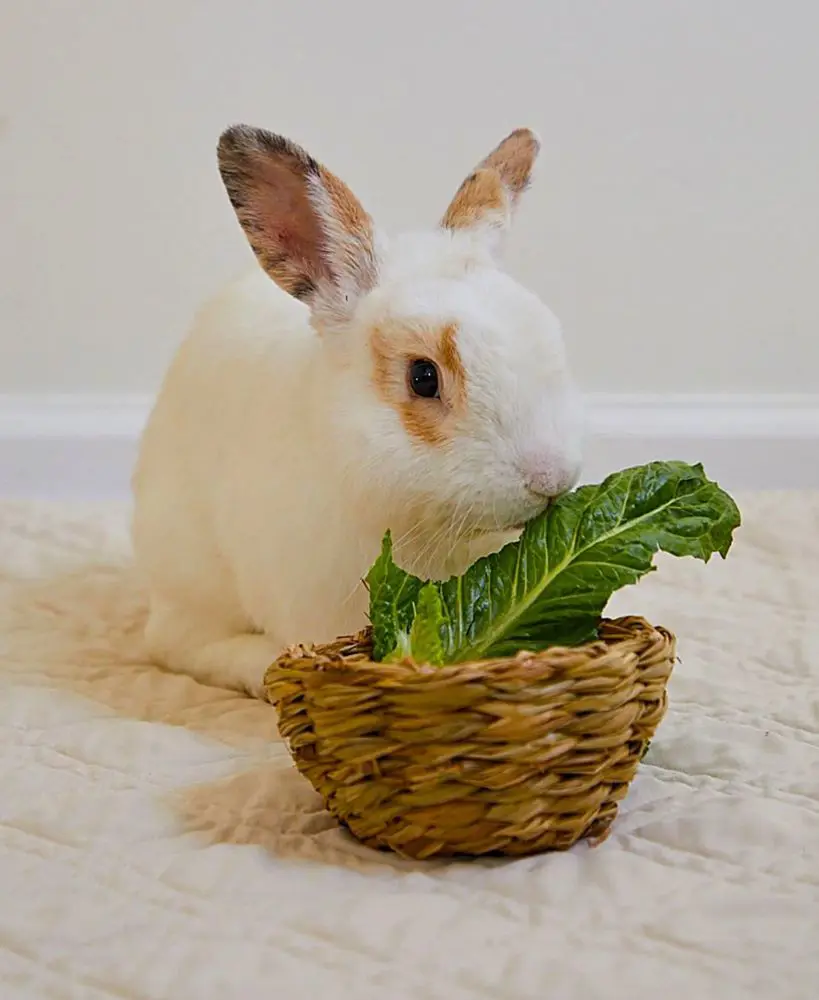
Spring greens refer to tender leafy vegetables harvested in early spring. These greens are safe for rabbits and can be a nutritious addition to their diet. They are, particularly, beneficial for their phytonutrients that help protect rabbits by reducing inflammation and promoting healthy cell function.
Some of the best spring green varieties to feed your bunny include arugula, romaine lettuce, and mustard greens. These greens offer a mix of flavors and textures that rabbits enjoy, providing both nutritional benefits and mental stimulation.
19. Cucumber
A refreshing human food, rabbits can also enjoy cucumbers in moderation. It's best to feed rabbits raw, ripe cucumbers rather than pickled or seasoned varieties. This prevents the excessive intake of salt or spices that are not suitable for rabbits.
While cucumber seeds are generally safe for bunnies to eat, they should be offered in moderation due to their high-fat content. Avoid feeding large quantities of cucumber seeds to prevent potential digestive issues. Likewise, dishes made with cucumbers, such as salads or slices in water, are okay as long as they are free from oils, dressings, or other ingredients.
20. Dill Leaves
Dill is an aromatic herb known for its feathery green leaves and distinct flavor. Rabbits often love dill leaves for their fresh, slightly tangy taste. These leaves are also high in iron and calcium, two vital components for the survival of the plant.
Gradually introduce dill leaves into your pet's diet by offering a small amount mixed with their regular greens. Observe your rabbit for any signs of digestive upset, such as changes in stool consistency or appetite. If your rabbit tolerates the dill leaves well, slowly increase the quantity over a week or two. Dill can be offered 2-3 times a week as part of a balanced diet.
Recent posts
Pets
Mastering Puppy Training: A Complete Guide for New Dog
New puppy training can be both an exciting and frightening experience. Patience, the proper approach, and consistency are the order of the day in making sure that your puppy turns into a well-behaved friend. In this article explore yourself through e...
15 Best Pet Tortoise Types For Beginners
Tortoises are beautiful species that help to enhance the beauty of a tank. They are interactive animals that enjoy being with humans. It is important to choose the correct species when you decide to own them. This article discusses the 10 best pet to...
What Rabbits Can Eat: A Guide To Healthy Foods
Feeding a rabbit can be an art, as they truly do have very specific tastes about what does or does not go onto their plate. Be it leafy greens or crunchy veggies, rabbits are in for a somewhat simplistic diet that keeps them hopping. The list of rabb...
20 Human Foods Hamsters Can Eat
Like any other pet, hamsters have some dietary requirements that are vital to sustaining their health. Hamsters exist on a staple diet comprising pellets mixed with essential vitamins and minerals necessary for growth and energy. Of course, if served...
15 Facts to Consider Before Owning A Hedgehog
Hedgehogs are extraordinary animals, with their spiky bodies, pointed snouts, small beady bright eyes, and ability to mold themselves into a tight ball in case of any danger. A pet hedgehog can indeed be quite rewarding for the person who enjoys comp...
20 Pet Friendly Stores In The USA
The swift rise of pet owners, especially ones with dogs, in the last few years has also increased the need for pet-friendly stores. Pet parents no longer want to give business to stores where their furry best friends aren't welcome. They want to shop...


